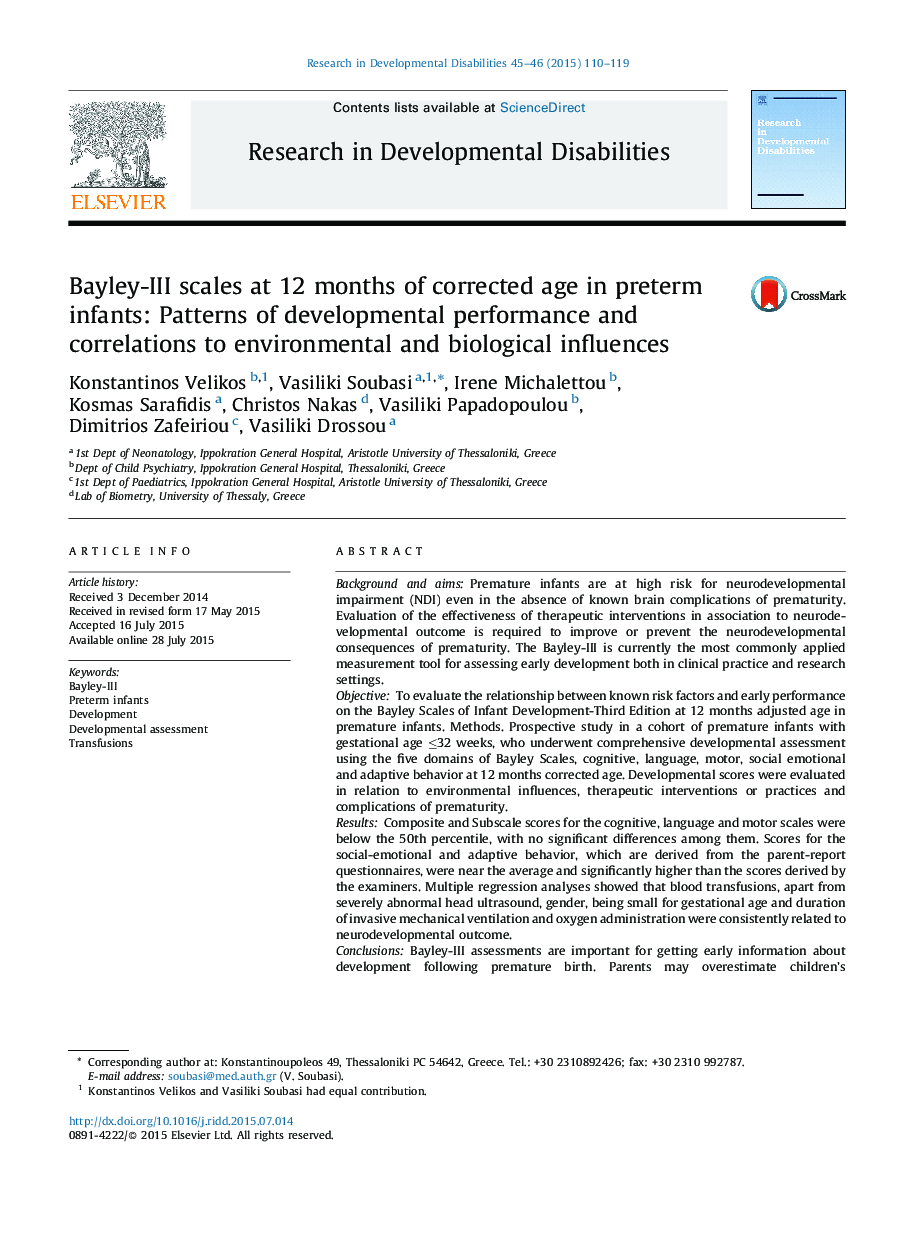| کد مقاله | کد نشریه | سال انتشار | مقاله انگلیسی | نسخه تمام متن |
|---|---|---|---|---|
| 371163 | 621900 | 2015 | 10 صفحه PDF | دانلود رایگان |
• Premature infants are at high risk for neurodevelopmental impairment.
• Bayley-III assessments provide early information about development.
• Parents overestimate children's performance.
• Neurodevelopmental outcome is related to environmental, biological or medical conditions associated with prematurity.
• Therapeutic strategies targeting known neonatal risk factors could affect neurodevelopmental outcome.
Background and aimsPremature infants are at high risk for neurodevelopmental impairment (NDI) even in the absence of known brain complications of prematurity. Evaluation of the effectiveness of therapeutic interventions in association to neurodevelopmental outcome is required to improve or prevent the neurodevelopmental consequences of prematurity. The Bayley-III is currently the most commonly applied measurement tool for assessing early development both in clinical practice and research settings.ObjectiveTo evaluate the relationship between known risk factors and early performance on the Bayley Scales of Infant Development-Third Edition at 12 months adjusted age in premature infants. Methods. Prospective study in a cohort of premature infants with gestational age ≤32 weeks, who underwent comprehensive developmental assessment using the five domains of Bayley Scales, cognitive, language, motor, social emotional and adaptive behavior at 12 months corrected age. Developmental scores were evaluated in relation to environmental influences, therapeutic interventions or practices and complications of prematurity.ResultsComposite and Subscale scores for the cognitive, language and motor scales were below the 50th percentile, with no significant differences among them. Scores for the social-emotional and adaptive behavior, which are derived from the parent-report questionnaires, were near the average and significantly higher than the scores derived by the examiners. Multiple regression analyses showed that blood transfusions, apart from severely abnormal head ultrasound, gender, being small for gestational age and duration of invasive mechanical ventilation and oxygen administration were consistently related to neurodevelopmental outcome.ConclusionsBayley-III assessments are important for getting early information about development following premature birth. Parents may overestimate children's performance. Neurodevelopmental outcome is related to several environmental, biological or medical conditions associated with prematurity. Adoption of therapeutic strategies targeting known neonatal risk factors could positively affect neurodevelopmental outcome.
Journal: Research in Developmental Disabilities - Volumes 45–46, October–November 2015, Pages 110–119
